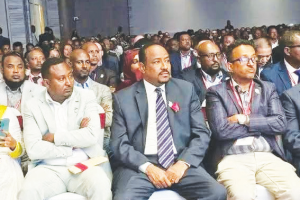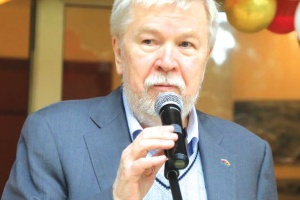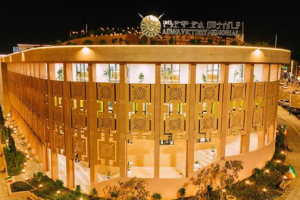BY FITSUM GETACHEW
We remember a few years ago when the government of Prime Minister Abiy Ahmed came to office, what he did first was engage in discussions with various sections of the population, various communities in diverse parts. We remember he traveled to all four corners of the country to meet representatives of people and discuss with them matters that were of serious concern to them. There was a feeling of change and new spirit in the air and these trips of the premier and his close aids were taken as the beginning of a new era in which government and people would work in close collaboration and consultation.
The premier presented to these communities his vision of a new country and the future of the people. He explained his views on how his government would operate and what his priorities would be. But we also saw him gather people belonging to this or that profession and had discussions with them. Among the first with whom he consulted were the community of artists. He convened them and had long discussions raising various issues around their profession but also about their role in the country. Almost all of the most renowned and loved artists were in attendance. However, many people were heard expressing reservations on how they could have been among the priorities of the premier. They must have thought that discussing with artists was not that important or urgent to deserve the attention of the premier at that juncture. And yet the premier knew well about the role these artists could have in any thing that is bound to happen in the country.
Many people were surprised to see the premier spend a lot of time with these people while according to them there were other more urgent matters. Evidently these people did not think of the importance of the role of arts in the making of a people, in the life of a community, and how much the arts are part and parcel of everyday life of people. Their main attention was directed only towards the various political forces or academics and intellectuals. They had professions such as economists, doctors etc. in their minds, but not artists. Evidently they did not stop a moment to focus what meanings arts could have in a people and what role it could play to shape the destiny of a people, a community.
But the premier knew that the arts are a very important instrument in contributing to the promotion and advancement of government policies and programs. Many people may not notice or observe it because they may not give much attention to the arts and personalities of art considering them as mere entertainment. And yet the arts have always been part of the focus of any government policies and ideas. Besides the normal and well acknowledged role of the media in being a close partner of governments, they could also have a negative influence, very critical of the operations of government. No doubt, without the media, proper communication between people and government may not be realized. As much as it can be an ally of governments the media can also be a watchdog and controller of government with its revelations, investigative reporting and criticisms. More or less the same can be said of the arts and people engaged in the arts world.
During the discussions the premier had with artists, he asked them what they have done with their talent to contribute for the growth of the society given their immense influence over it. He asked them to ponder and question themselves what their contribution has been for the promotion of peace and harmony among communities. He asked them what they did to hamper or counter the negative influence of certain extremists who preach and spread hate and hostilities among communities. What did they do to counter the venomous messages of certain irresponsible elements that may be on the payroll of terrorist groups or enemies of Ethiopia?
That means he knows that the arts are a formidable force that can be used to change a society by promoting certain values and help spread certain ideas initiated or suggested by the government and its close associates. It is well known that the arts are a big part of what a society is composed of. It is in a way part of the psyche of people because through the arts, people express their emotions, frustrations as well as aspirations with for instance songs especially when they are happy and forget their immediate worries. They enjoy moments of joy and comfort by the works of artists. It could be music, it could be literature with poetry and poems etc. that people engage their time in and enjoy their leisure by unknowingly taking some of the messages contained in the works.
It could be films in which certain characters are represented in the stories and influence people’s sentiments. It could also be dramas, plays presented on stages depicting certain characters. It could as well be painting works presented on canvas or sculpture carved by well trained and talented professionals. All these works could have a message or a meaning that could be taken into consideration by the viewers, by the audience. In this sense the works of arts become a vehicle of communication that can be used to transmit some meaningful message. Hence artistic works can have multifaceted presence in society. They do have the potential to deeply influence society. At times they can lead society, presenting new views, new ideas, and new dreams anticipating the times. At others they are seen pushing from behind so that ideas are well spread and penetrate society’s mindset.
Their message can very easily spread because artists are usually very popular among ordinary people as they have easy access to their hearts. They can easily create an atmosphere of delight and comfort or hope in society and in this sense their influence can be formidable. That is why we observe clever governments use them to advance their policies or have them portrayed in positive posture. Just as could be the case with the media, where criticism could be one of their duties, so also could be with works of art if there is an atmosphere of freedom in which to operate. If however there is censorship of certain products of arts such as songs or films or even books etc it would be hard for artists to express their full potential because censorship stifles creativity.
However, it is also hard to blame governments that put certain restrictions on certain works of art which seem to be highly abusive with their freedom. Governments smell the potential of danger for their authority as real because of the immense influence artists can have on people. As artists are loved by their admirers, the more admirers they have, the more powerful they are, and the more significant their influence is. Hence, they tend to receive more attention in government circles.
We see that it is through the use arts that every business enterprise and every commodity, every service is promoted and sold. The world of advertisements exists and thrives only through more and more artistic expressions and the kinds of highly original works of arts that are exhibited. Actions, words, voices and graphics all contribute to the success of a work of art and its capacity to attract the attention of the audience. That is why it is also a vehicle of success and marketing.
Messages that are transmitted through works of art are often very effective and influential. They can help shape the mind set and attitude of people. When these works of art are transmitted repeatedly through all sorts of media (and today beside the mainstream media there is the huge influence of the social media), it becomes a huge force that exerts a lot of pressure on people. That is why proper and intelligent use of the role of artists becomes a key in any public endeavor.
The premier’s suggestion that artists must use their God given talent to promote the advancement of peace and harmony in society and other values that are fundamental in creating a more reflecting society based on reasoning rather than be pushed by certain extremist narratives and propaganda was timely. Ethiopia needs the solid contribution of its esteemed artists to the promotion of peace and tolerance in diversity and not creation of a feeling of revenge and discrepancy among various communities. Undoubtedly, Ethiopia is a special country composed of various peoples and cultures. Historians and academics have witnessed that such diversity must be used to promote the growth and development of the country and not be a point of contention and disputes.
In short, the messages artists can transmit through their works here can be vital because they are capable of fascinating their audience as they are popular and well heeded. They are viewed as a sort of authority and when these messages are aired repeatedly they can potentially reshape the minds of many. They can mold them. Even at the subconscious level messages that are conveyed in lyrics of songs or poems or any drama or film have more chance of penetrating people and remaining there for long.
That is why governments cannot afford to disregard works of art or artists. Rather they must create the atmosphere in which they can operate with originality and creativity. Works of art are beautiful. They have the magnetism of a huge audience for a long period of time, and we should be clever enough to use this instrument to advance real values that help transform our society towards a more just and equitable one rather than one that engages only in negative energy of spreading venomous messages that can only result in hatred and conflict.
The Ethiopian Herald 31 August 2022





